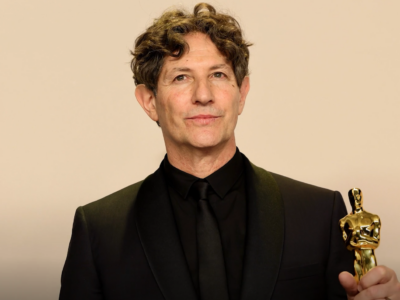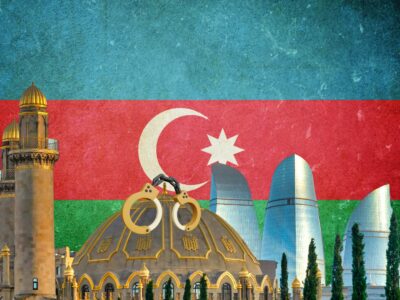Following their virtual conference last November, Tanzanian bloggers are currently discussing the details of the organization they are intending to form. A blog has been set up by the interim committe, to facilitate the process. So far, they have chosen the name for the organization, Jumuiya ya Wanablogu Tanzania (the community of Tanzanian bloggers). The current discussion is about leadership structure. There will be a single item for discussion every week. Later on, there will be an open competition to design the logo of the organization.
Zanzibar: CIA's Role in the Zanzibar Revolution, No More Miniskirts, and Sauti za Busara
Mid January is when Zanzibaris remember the 1964 revolution that ousted Sultan Jamsheed Bin Abdullah’s regime. The story of the Zanzibar revolution has either been told through the official government version or has remained shrouded in secrecy and conspiracy theories. Majid Mjengwa, a college instructor and journalist in Tanzania, posts an article by a Tanzanian columnist Nizar Visram who is of the view that Zanzibar revolution was not a sporadic event but rather a long process which involved the majority of Zanzibaris, various political parties and foreign powers keen to marginalise leftist elements in Zanzibar politics.
To highlight the role of foreign powers, Visram digs into the London Public Records Office and the CIA archives now available to the public and refers to the 1961 British Resident governor‘s letter to his government:
Waraka huo unaonyesha wasiwasi wao kuwa uongozi wa chama cha ZNP unachukuliwa na viongozi wa mrengo wa kushoto akina Abdulrahman Babu. Mkakati ukaandaliwa ili kuimarisha uongozi wa Sheikh Ali Muhsin na kumuondoa Babu.
Visram notes that to understand factional conflicts within Zanzibar political parties it is important to revisit CIA report written at the time of the revolution:
Jambo la kimsingi huko Zanzibar ni kuzuia utawala usishikiliwe na Wakomunisti. Kwani serikali iliyopo sasa ni mchanganyiko wa wazalendo wa Kiafrika na Wakomunisti, kila upande ukiwa unavutia kwake. Wasiwasi wetu ni kuwa hawa wazalendo wanaweza wakawekwa kando.
Lengo lazima liwe kuimarisha serikali ya kizalendo ikiongozwa na Abeid Karume. Ni lazime pia juhudi zifanywe kuminya upande wa wakomunisti akina Babu na Hanga. Nyerere anaamini kuwa hawa nao ni wazalendo wa Kiafrika ambao wanaweza kutumikia nchi yao. Hoja hiyo tunaikataa.”
Hivyo kila jitihada zifanywe ili kuwashawishi Waingereza wachukue hatua imara, Marekani inaweza kuchukua hatua za kidiplomasia kwa njia za siri au kusaidia kiuchumi na kiufundi, lakini Waingereza ndio wanapaswa wawe msitari wa mbele.
Our aim should be to strengthen the nationalist government led by Abeid Karume. The communists such as Babu and [Kassim] Hanga must also be stopped. Nyerere believes that they (Babu and Hanga) are African nationalists as well. We do not believe that.
Steps should be taken to convince the British to take a firm stand, USA can either pursue covert diplomatic steps or economic and technical assistance, but the British have to take charge.
Kibunango, who mainly blogs about Zanzibar political and socio-cultural issues, reflects on the new code of conduct passed by the ethic and development committee of Nungu village, in Zanzibar. The code bans miniskirts, prostitution and alcohol. Nungwi villagers have recently being extremely concerned about the level of moral decadence in their midst, which Kibunango links it to the growth in the tourism sector. Nungu is a popular tourist destination. Kibunango supports the move by the villagers to protect their moral identity, but argues that a niqab is not a Zanzibari dress:
Na iwapo vazi la kizanzibari ni kama lile la kuvaa baibui na hijabu yake, basi sheria hiyo itakuwa inalenga zaidi maadili ya kidini kuliko maadili ya kizanzibari, na itakuwa sio kosa kuhoji kauli ya serikali ya kusema kuwa nchi hiyo si ya kidini. Na kwanini wananchi ambao sio wa dini fulani washurutishwe kuvaa baibui?
Ndesanjo reminds his readers that the annual music festival in Zanzibar, Sauti za Busara, will take place next month.
Tanzanian Politics: Defection and Protesting Against $12M Secret Payment
And in the mainland Tanzania, although some of the opposition parties’ cadres have recently defected to the ruling party, the opposition is down but not out. Mwandani questions defectors principles and motives. He sees the defection the same as having Tanzanian soccer players joining the Senegalese national team.

Photoblogger Issa Michuzi posts photos of a peaceful demonstration, organised by Tanzania's opposition parties in Dar Es Salaam to call for accountability and transparency. Following an investigation by UK's Serious Fraud Office into UK's biggest arms supplier BAE Systems, the opposition alleges that Tanzania's government officials not only wasted taxpayer's money but may have acted inappropriately while purchasing a radar from England.
The Wretched of the Earth in Tanzania and Kenya
Tanzanian photoblogger Maggid Mjengwa attended the World Social Forum 2007 in Kenya and visits Kibera in Nairobi, which is arguably the biggest and oldest urban slum in Africa. Mjengwa did a wonderful job of covering the forum with his camera.
Elsewhere in the Swahili Blogosphere, a Tanzanian Film maker, Sultan Tamba, is irked by EATV‘s television program “Uswazi” in which the presenter visits the squalid areas of Dar Es salaam showing the worst living conditions. “Uswazi” is a Swahili slang for a lowlife lifestyle.
… Lakini kwa maana ya mtangazaji huyo anayoionyesha kwenye kipindi chake, USWAZI ni maeneo mabovu, machafu, ya Kipumbavu na hasiti kuonyesha kuwa wanaoishi kwenye mitaa hiyo ni watu tofauti, wanaoishi kwenye kisiwa kinachojitegemea kiasi kuna wakati anapokuwa kwenye mitaa hiyo akirekodi kipindi hudiriki kutamka tena kwa kurudiarudia, “Mtazamaji nina hakika katika maisha yako hujawahi kupita sehemu kama hizi!” Halafu ataisifia sana mitaa hiyo na kila anachokiona – sifa ya kejeli – kwamba hii ndiyo mitaa bora kabisa ndugu mtazamaji!” Anasema hivyo huku akijua kwamba anaongea kinyume!
Kwa ufupi nionavyo mimi, hiki ni kipindi hiki cha dharau na matusi ya rejareja dhidi ya wakazi wote wanaoishi kwenye mitaa hiyo na Watanzania kwa jumla kwa sababu asilimia 70 ya Watanzania wanaishi kwenye mazingira hayo! Hiyo ni kwa mujibu wa takwimu zilizotolewa na Waziri wa Ujenzi, Bw. John Magufuli.







1 comment
I find it amazing that such a blog could take place in a country that rarely is talked about in mainstream media. It’s fascinating to see that the ZNP is endeavoring through blogging to stop communists from taking over and urging the United Kingdom to take a stand in this matter.